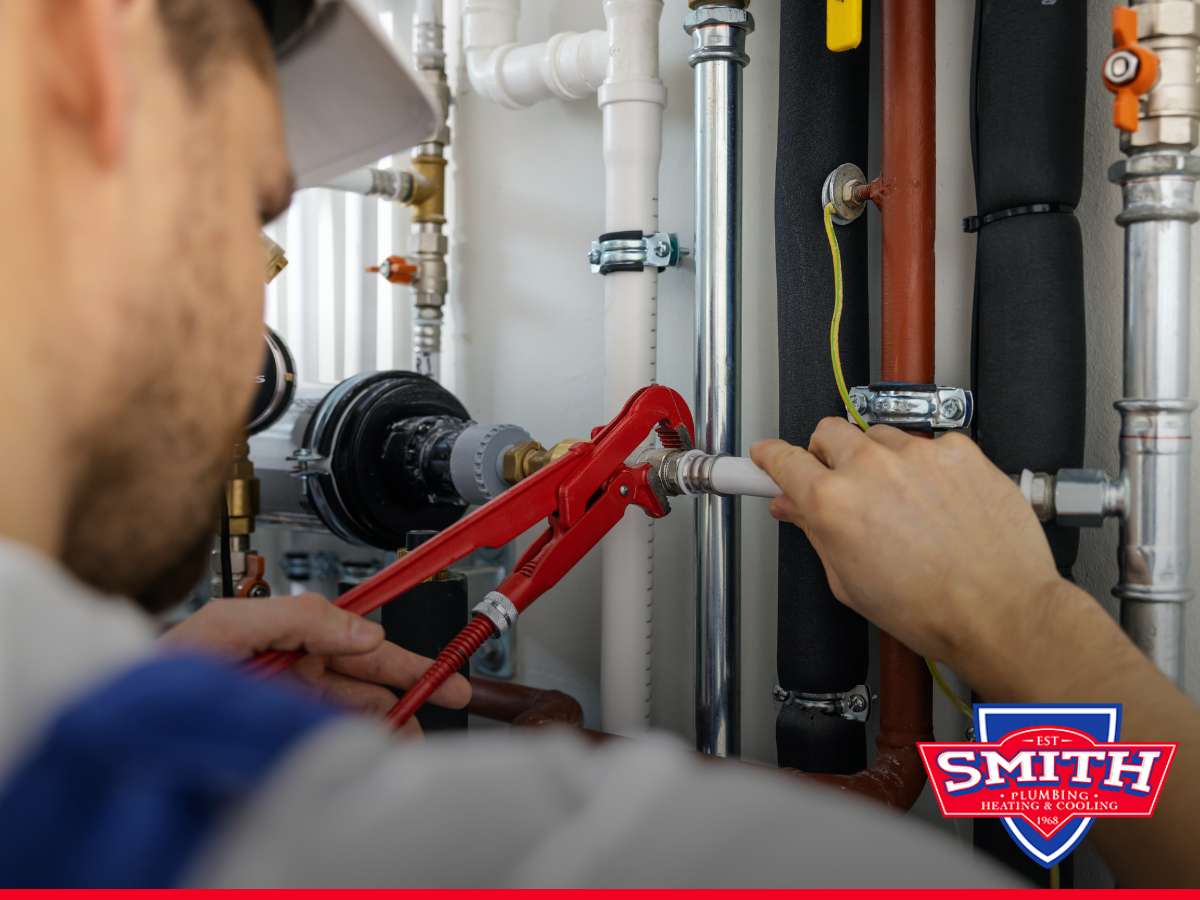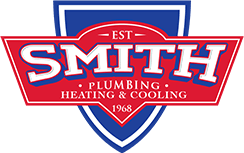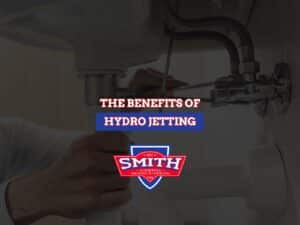How Modern Plumbing Systems Maintain Efficiency, Safety & Comfort
Keeping your home's plumbing system in top condition is essential for maintaining efficiency, safety, and comfort. Over time, pipes and fixtures can deteriorate, leading to leaks, water damage, and higher utility bills. But how do you know when it’s time for an upgrade? This guide will help you recognize the key signs, understand the benefits of modern plumbing systems, and walk you through the upgrade process.

Signs That Indicate You Need a Plumbing Upgrade
Recognizing the early signs of plumbing deterioration can save you from costly plumbing repairs in the future. Here are some indicators that it might be time for an upgrade:
1. Persistent Leaks
A dripping faucet or occasional leak may seem minor, but frequent leaks throughout your home could indicate aging pipes. Over time, small leaks can cause structural damage and mold growth. If repairs are becoming a regular occurrence, upgrading your system can be a more cost-effective solution.
2. Low Water Pressure
If your water pressure has significantly decreased, even after checking for clogs or leaks, your pipes may be corroded or clogged with mineral buildup. Modern plumbing services can identify the issue and replace outdated pipes to restore proper water flow.
3. Rusty Or Discolored Water
Brown or yellowish water is often a sign of rusted pipes. This not only affects water quality but also signals pipe deterioration. Replacing old pipes with modern materials like PEX or copper ensures cleaner and safer water.
4. Strange Noises In Pipes
Banging or rattling sounds from your pipes may indicate loose or damaged sections. These noises could result from pressure changes, outdated materials, or water hammer issues, which may require an upgrade.
5. Frequent Drain Clogs
If you experience recurring drain clogs despite using proper maintenance methods, your pipes may be deteriorating internally. Over time, older pipes narrow due to mineral buildup, restricting water flow.
Benefits Of Upgrading Your Plumbing System
Investing in a plumbing upgrade offers long-term advantages that go beyond fixing leaks. Here’s how modernizing your plumbing system can benefit your home:
1. Improved Water Quality
Upgrading your plumbing system can have a major impact on the quality of your water. Installing new pipes made from durable, non-corrosive materials reduces these risks, ensuring that the water in your home is cleaner and safer for everyday use. Some of the key improvements include:
- Reduced risk of contamination: New pipes are made from non-corrosive materials that help protect your water from impurities.
- Cleaner, clearer water: Without the build-up of rust or scale, the water quality improves, making it healthier for drinking, cooking, and bathing.
- Healthier household: Cleaner water can lead to fewer skin irritations, illnesses, or allergic reactions caused by waterborne bacteria and minerals.
2. Increased Efficiency & Lower Bills
When you upgrade your plumbing, you're boosting your home’s efficiency. New plumbing fixtures are designed to conserve water, which means lower utility bills. With energy-efficient options, you'll save more over time:
- Low-flow fixtures: Installing modern toilets, showerheads, and faucets reduces water consumption while still offering great performance.
- High-efficiency appliances: New dishwashers, washing machines, and water heaters are built to use less water and energy, lowering your overall bills.
- Preventing leaks: By replacing old, leaky pipes, you stop wasting water and avoid higher utility costs from undetected leaks. Plus, working with emergency plumbers ensures that any urgent issues are addressed promptly, preventing further water waste and damage.
3. Higher Home Value
An updated plumbing system can increase your home’s value when it’s time to sell. Buyers are more likely to invest in a home with modern plumbing, knowing they won’t face unexpected repair costs. Upgrading your system can make your home more appealing and even increase its resale value:
- Appealing to buyers: A well-maintained plumbing system shows that the home has been cared for, making it more attractive to potential buyers.
- No more outdated systems: Homes with old pipes and fixtures may scare off buyers who worry about future repair costs.
- Investment return: Plumbing upgrades are one of the most cost-effective ways to increase your home’s resale value, providing a solid return on your investment.
4. Reduced Risk Of Water Damage
Leaks and burst pipes can cause major water damage to your home, and older plumbing systems are more vulnerable to these issues. With an upgrade, you'll have peace of mind knowing that your pipes are less likely to fail. Newer materials and modern designs provide a more secure, durable plumbing system that helps protect your home from costly water damage:
- Durable, modern materials: Materials like PEX, copper, or CPVC are resistant to corrosion and wear, making them more reliable than older materials like galvanized steel.
- Better seals and joints: Upgraded plumbing systems feature advanced sealants and connections that reduce the risk of leaks.
- Fewer emergency repairs: An updated system helps prevent surprise breakdowns, which can lead to unexpected water damage in your home. Plus, with the expertise of professional plumbers, you'll have confidence that your system is installed and maintained properly, lowering the chances of issues down the road.
5. Compliance With Modern Building Codes
Building codes change over time, and older plumbing systems might not meet the latest safety or regulatory standards. Upgrading your plumbing ensures that your home is up to code, which can help you avoid legal and safety issues down the line. Modern plumbing systems are designed with the latest standards in mind, offering you peace of mind:
- Safety: New systems reduce the risk of leaks, contamination, and other hazards that could pose a threat to your home’s integrity.
- Avoiding fines: If your plumbing system doesn’t meet current regulations, you could face fines or penalties.
- Peace of mind: Knowing your plumbing is up to code means you don’t have to worry about future legal troubles or safety concerns.
Steps To Upgrade Your Plumbing System
If you’ve determined that it’s time for an upgrade, here’s how to move forward efficiently:
- Assess Your Needs: Identify the areas in your plumbing system that need improvement. Are you dealing with frequent leaks? Do you have outdated pipes? Evaluating these factors will help prioritize upgrades.
- Set a Budget: Determine the cost of the upgrade, including materials, labor, and unexpected expenses. A well-planned budget prevents overspending and ensures a smooth process.
- Choose the Right Materials: Modern options like PEX, copper, and PVC provide better durability and efficiency. Consult with plumbing contractors to determine the best materials for your home.
- Hire Professionals: A skilled plumbing company can ensure the work is done safely and up to code. Professional plumbers have the expertise to handle complex installations and prevent future issues.
- Plan for Minimal Disruption: Plumbing upgrades can be disruptive, so schedule work at a convenient time. Consider temporary water supply solutions if necessary.
- Perform a Final Inspection: Once the upgrade is complete, test the system to ensure proper functionality. Check for leaks, monitor water pressure, and inspect all new installations.
Maintenance Tips For Your New Plumbing System
After upgrading your home’s plumbing, keeping it in top condition is essential to ensure its longevity and efficiency. Regular maintenance not only helps prevent costly plumbing repairs but also protects your home from water damage. Here are the key maintenance steps to follow:
1. Monitor & Regulate Water Pressure
Excessively high water pressure can cause strain on your pipes, leading to leaks and premature wear. A pressure regulator can help maintain a safe level and prevent damage. We tell you how to maintain proper water pressure with these tips:
- Install a pressure regulator: This device keeps water pressure at a safe level.
- Check your water pressure regularly: Use a pressure gauge to ensure it remains between 40-60 psi.
- Fix leaks immediately: Even small leaks can increase pressure fluctuations.
- Upgrade aging pipes: Older pipes are more vulnerable to pressure-related damage.
2. Avoid Chemical Drain Cleaners
Many store-bought drain cleaners contain harsh chemicals that can corrode pipes over time. Instead, opt for safer alternatives that keep your plumbing system intact. Learn some ways to keep your drains clear:
- Use a drain strainer: Prevents hair, food scraps, and debris from clogging pipes.
- Flush with hot water: Pouring hot water down the drain weekly helps dissolve minor buildup.
- Try a baking soda and vinegar solution: This natural mixture can break down grease and minor blockages.
- Schedule professional drain cleaning: If you experience recurring clogs, a plumbing company can safely remove buildup without damaging your pipes.
3. Protect Pipes During Cold Weather
Freezing temperatures can cause pipes to burst, leading to extensive water damage. Taking preventive steps before winter can save you from costly plumbing repairs. Now, how do you get your plumbing ready for the cold season? Think about:
- Insulate exposed pipes: Use foam pipe insulation to protect pipes in unheated areas.
- Keep faucets dripping during extreme cold: Running water prevents pipes from freezing.
- Seal gaps and cracks: Close any openings around pipes where cold air could enter.
- Disconnect outdoor hoses: Drain and store garden hoses before temperatures drop.
Do You Really Need To Upgrade Your Home's Plumbing? Consider These Issues
Upgrading your plumbing can enhance your home's efficiency, but is it necessary? Consider these points before deciding:
- Evaluate the Condition of Your Plumbing: Check for leaks, corrosion, or outdated materials. If your plumbing is deteriorating, an upgrade might be a smart investment to avoid costly repairs later.
- Assess the Scope of the Upgrade: You don’t always need a full system replacement. Sometimes, replacing just specific components like pipes or faucets is enough to improve performance.
- Set a Realistic Budget: Plumbing upgrades can be costly, so create a budget that includes potential extra expenses. Having a contingency fund will help cover any unexpected costs.
Choose Smith Plumbing For Expert Plumbing Upgrades & Repairs
Upgrading your home’s plumbing is a major investment, and having the right team by your side makes all the difference. At Smith Plumbing, we provide expert plumbing services in Mesa to ensure your home’s system is efficient, durable, and up to code.
Whether you need fixture replacements, repiping, or emergency assistance, our experienced team is here to help. Contact us at Smith Plumbing today to schedule a consultation!


